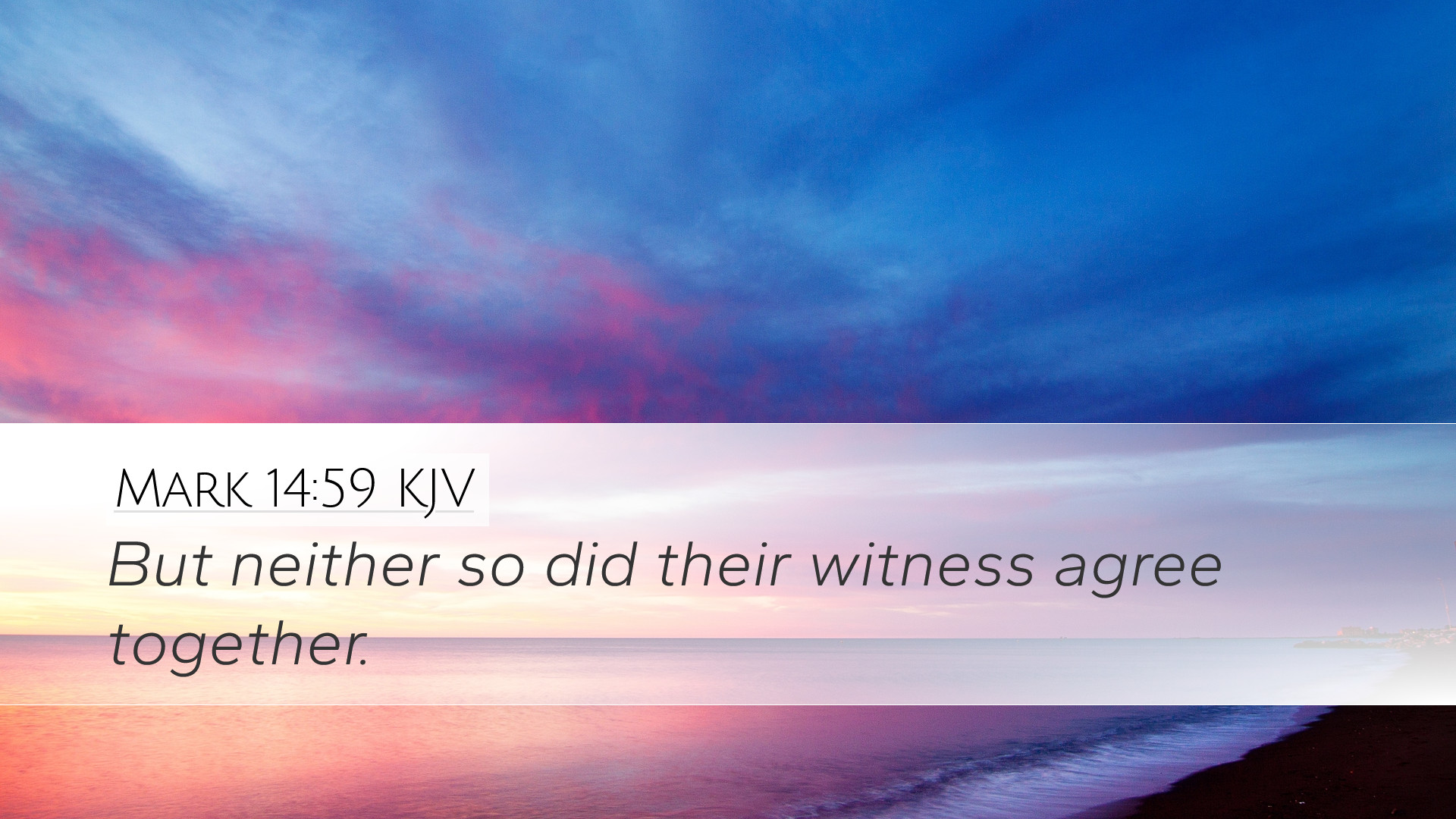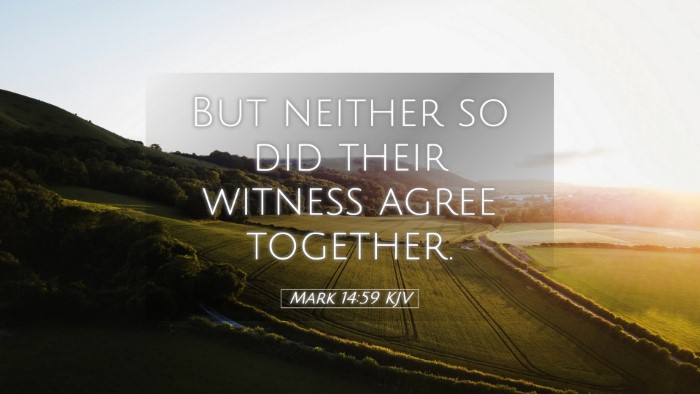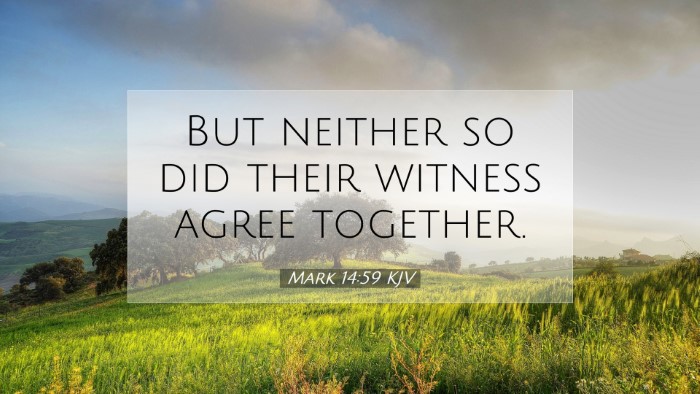Commentary on Mark 14:59
Mark 14:59 (KJV): "And they were not able to prove the testimony."
Introduction
The verse Mark 14:59 is a pivotal moment in the gospel narrative, illustrating the intense struggle between truth and false testimony faced by Jesus during His trial. This verse reflects not only the injustice of the proceedings against Him but also emphasizes the integrity of His character amidst false accusations. Here, we will explore insights from notable public domain commentators including Matthew Henry, Albert Barnes, and Adam Clarke.
Contextual Analysis
This verse occurs within the context of Jesus’ trial before the Sanhedrin, a crucial moment in the passion narrative. It follows the false witnesses who attempted to bring accusations against Him. It is essential to recognize that the legal and religious framework of the time expected strict adherence to the law, which these false testimonies blatantly violated.
Matthew Henry's Commentary
Henry emphasizes that the failure of the witnesses to prove their accusations illustrates the futility of human deception in the face of divine truth. He notes:
- A Divine Silence: The impotency of the testimonies given against Jesus shows a divine silence protecting Him.
- The Justice of God: Henry comments on the nature of God’s justice, suggesting that He will ensure that truth will ultimately prevail over falsehood.
- Reflection of Jesus’ Character: Jesus remained steadfast and did not retaliate against the accusations, showcasing His sinlessness and authority.
Albert Barnes' Exposition
Barnes provides a thorough examination of the intended meaning behind this verse, pointing out several key elements:
- Inadequacy of False Testimonies: Barnes articulates that the inability of the witnesses to validate their claims highlights the absurdity of their attempts and the senselessness of the trial.
- Implications for Believers: He suggests that this moment serves as a reminder to believers about the ultimate truth of Christ, asserting that no number of false testimonies can overcome His authenticity.
- Legal Implications: The legal proceedings were on shaky ground, as established by the Jewish law that required two or three witnesses to confirm any claim, which these witnesses failed to meet.
Adam Clarke's Commentary
Clarke's approach provides a personal and pastoral reflection on this moment. He notes:
- Power of Truth: Clarke emphasizes that truth cannot be hidden and must eventually shine through, regardless of the efforts to obscure it.
- Application for the Church: He encourages readers to hold fast to the truth in a world filled with deceit, drawing parallels to contemporary challenges faced by the Church.
- Moral and Spiritual Integrity: Clarke argues that Jesus’ trial is a profound lesson on maintaining spiritual integrity in the face of unfounded accusations.
Theological Reflections
Mark 14:59 invites further theological reflection on several aspects of faith:
- The Nature of Witness: The verse compels us to consider what constitutes a true witness in our faith—one who testifies based on genuine experience and truth.
- The Role of Suffering: It emphasizes the role of suffering in the believer’s life, where Jesus exemplifies the purposes of suffering not as a result of personal failing, but for the fulfillment of divine will.
- Truth in the World: This narrative serves as a challenge for believers today to advocate for truth in a culture that often favors convenience over integrity.
Practical Applications
As pastors, theologians, and students of the Word, there are several applications derived from this verse:
- Encouragement in Trials: Believers should find encouragement in the example of Christ, who did not falter in truth despite facing significant adversities.
- Encouragement to Speak the Truth: There is a call to uphold and speak the truth, especially in difficult circumstances where there may be pressure to conform or to silence.
- Fostering Community Integrity: As a Church, we are called to foster an environment where honesty and integrity are valued, echoing Jesus’ own conduct during false accusations.
Conclusion
Mark 14:59 stands as a testament to the challenges of bearing witness to the truth in the face of falsehood. Drawing from the insights of renowned commentators like Matthew Henry, Albert Barnes, and Adam Clarke, we are reminded that despite the reality of deceit, the ultimate truth of Christ prevails. This moment encourages us to reflect on our own lives and our commitment to uphold the truth, reaffirming our foundation in Christ, who is the truth, and calling us to a life that mirrors His moral integrity.


